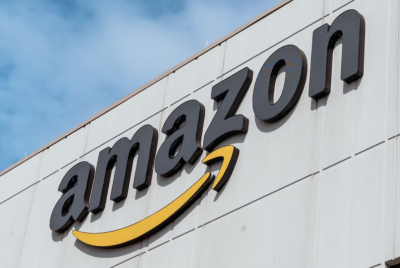Petronas Seeks Global Market Opportunities For Small-Scale Malaysian Suppliers
With the launch of its Supplier Support Programme, Petronas is sharing its learnings with smaller companies

On August 12, just days before celebrating its 50th anniversary, Petronas unveiled a new initiative aimed at boosting sustainability among its suppliers in the oil and gas sector. The Supplier Support Programme for Sustainable Practices is designed to help Malaysia's oil and gas services and equipment (OGSE) suppliers adopt best practices in environmental, social, and governance (ESG) standards.
Participants in the programme will benefit from access to transition finance, customised ESG training, and a centralised platform for tracking and reporting carbon emissions and climate risk exposure.
Petronas, established in 1974 as Malaysia's national oil and gas company, has expanded its operations to over 100 countries. Over the past five decades, the company has managed Malaysia's hydrocarbon resources, including key oil-rich areas in Sabah and Sarawak, solidifying its role as a leading energy player on the global stage.As the impacts of climate change have become more apparent, Petronas has embarked on a journey towards a more sustainable future.
In 2020, the company announced its ambition to reach net zero carbon emissions by 2050, with targets including reducing operational greenhouse gas emissions and exploring carbon capture and storage technologies. Its Gentari subsidiary has rapidly emerged as one of Southeast Asia's fastest-growing clean energy firms. At the same time, its acquisition of Amplus Solar has substantially expanded its flourishing portfolio of renewable resources.
Now, with the launch of its Supplier Support Programme, Petronas is sharing its learnings with smaller companies that may not have the resources to proceed independently.
Its support could not have come at a more critical time. Governments and international bodies are tightening their environmental restrictions, introducing strict reporting requirements and ceasing business with those who no longer meet expectations.
Last year, for example, the ISSB released its inaugural sustainability disclosure standards. The guidelines require companies to report sustainability-related risks throughout their supply chain, meaning that even small suppliers who aren't participating may be required to provide their customers with stringently gathered data.
Similar rules are in various stages of development worldwide, from Australia to the UK, Canada to South Korea, and Japan to the US. The EU recently passed its landmark due diligence legislation, paving the way for others to follow.
While these regulations are undoubtedly well-intentioned, their introduction will put an enormous burden on small and medium-sized enterprises, which are expected to provide information to fulfil their role in the chain.
But with Petronas' Supplier Support Programme, Malaysian OGSE suppliers will be uniquely prepared for expansion into global markets, no matter what obligations are thrown their way. They will have the tools and resources to demonstrate their commitment to global sustainability goals and earn their place in tomorrow's world.
The newly launched Programme reflects Petronas' vision of sustainability, which is defined through four distinct lenses. It recognises that sustainability goes beyond safeguarding the environment and includes responsible governance, positive social impact, and continued value creation.
With this latest initiative, Petronas is introducing smaller firms to major global players who will relish adopting sustainable practices. In doing so, it will simultaneously enhance the resilience of its own oil and gas value chain by ensuring that its suppliers are aware of and respond to their own climate-related risks.
Of course, only some global markets will be as welcoming as hoped. The Philippines, for example, has already demonstrated its hostility by dragging Petronas into its lengthy legal dispute with the Malaysian Government.
The case was launched by a small group of Filipinos who claimed that the Sabah region's resources were rightfully theirs. With the support of a corrupt arbitrator who had been paid an "unusually high fee" to deliver his ruling even after being ordered to drop the case, they were awarded $15 billion in 'compensation.'
Gonzalo Stampa, the arbitrator in question, was subsequently convicted for his criminal conduct in handling the case. In response, the Filipino plaintiffs transferred their demands from country to country until they reached Luxembourg, which allowed them to freeze Petronas' assets.
But Petronas is an entirely independent commercial entity, with no direct associations to the case. Yet, the Philippines' unlawful seizure of its resources has hampered its business operations.
"The sheer scale of potential corruption is clear," concluded Keith Ellison, the longstanding Attorney General of Minnesota and former Vice Chair of the US Democrat Party.
Now, Petronas is embroiled in legal difficulties that are not of its making. It has subpoenaed Therium – the third-party funder bankrolling the claim to its assets – hoping to expose further corruption, but the situation remains unresolved.
With a fifty-year legacy in its wake, many Global South nations will hope Petronas can progress with its plans. This is not just the future of a single company but of Malaysia's burgeoning energy industry.
© Copyright IBTimes 2025. All rights reserved.



















